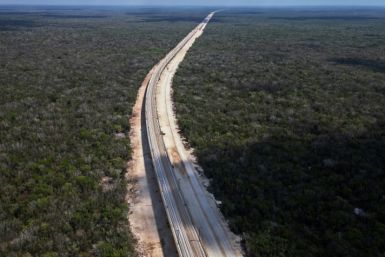NZ to Deploy Deep-Sea Balls to Monitor Ocean Floor And Understand Climate Change
New Zealand scientists will be deploying deep-sea monitors to the ocean floor to find out more about global climate change. Using modern echnology, New Zealand's National Institute of Water and Atmospheric Research (NIWA) said it will put two plastic-encased glass balls measuring 35 cm in diameter.
Scientists will send the deep-sea balls in the Kermadec Trench located northeast of the North Island. The balls contain sensors to measure the salinity and temperature between the surface and about 6,000 meters deep. The balls' sensors will then transmit the data to the satellites.
According to reports, it would be the first time a device will be deployed at such ocean depths. It would also mark another stage in the international Argo program. NIWA said more than 3,000 Argo floats were recording data at the top 2,000 meters of the oceans worldwide.
Dr. Phil Sutton, a NIWA oceanographer, said in a statement the latest technology has allowed scientists to fill in the gap in data between the top 2,000 meters of the sea and the ocean.
According to NIWA, Argo floats sink to about 1 km below sea level. They begin to sink another 2 km every 9 days before they rise up to the surface while measuring the water's temperature and salinity.
As the float surfaces, its position and data are transmitted via satellite before the float goes back down and repeats the whole process. Sutton said the data gathered will increase their understanding of the how the ocean affects the climate and its role in climate prediction systems.
Underwater Mining
Meanwhile, in a Reuters report, the New Zealand government may be set to approve the world's first commercial metals mine at the bottom of the ocean. The underwater iron-ore operation, if approved, will allow New Zealand's Trans Tasman Resources Ltd. to begin dredging in the west coast.
The possible approval may encourage others to explore the potential for mining copper, cobalt and other metals on the ocean floor. Nautilus Minerals Chief Executive Michael Johnston said many are waiting for the decision of New Zealand regarding the underwater mining operation.
Reports said the push to explore the ocean for mining minerals may be gaining momentum as ore deposits on land are on the decline. The demand for metals is on the rise for high-tech applications. With developments in technology, ocean mining is more feasible for the deepwater oil and gas industry.






